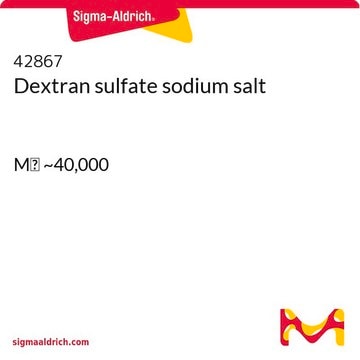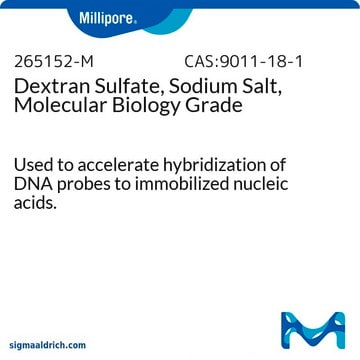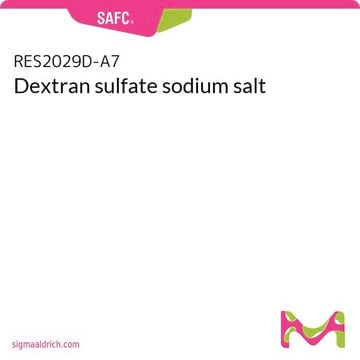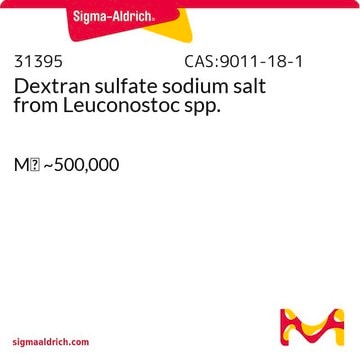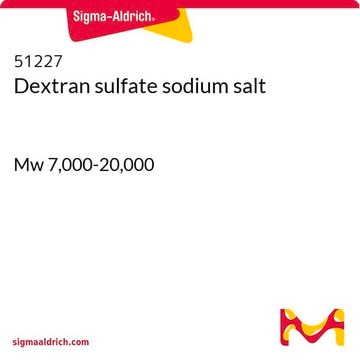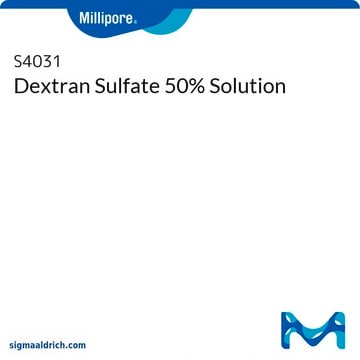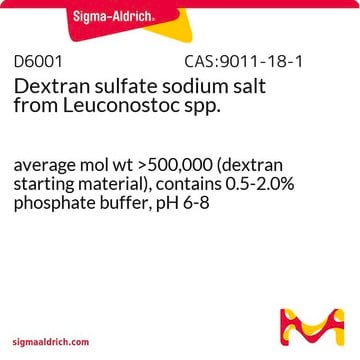31404
Dextran sulfate sodium salt from Leuconostoc spp.
Mr 5,000
About This Item
Recommended Products
biological source
(Leuconostoc spp.)
Quality Level
form
powder
mol wt
Mr 5,000
composition
Sulfur Content, 16.0-20.0%
loss
≤10% loss on drying
useful pH range
6.0-8.0 (10 g/L)
solubility
H2O: 0.1 g/mL, clear, colorless to slightly yellow
water: 100 g/L at 25 °C (77 °F )
H2O: freely soluble 50 mg/mL, clear
storage temp.
room temp
Looking for similar products? Visit Product Comparison Guide
Application
Biochem/physiol Actions
Preparation Note
Other Notes
Storage Class Code
11 - Combustible Solids
WGK
WGK 2
Flash Point(F)
Not applicable
Flash Point(C)
Not applicable
Personal Protective Equipment
Choose from one of the most recent versions:
Already Own This Product?
Find documentation for the products that you have recently purchased in the Document Library.
Customers Also Viewed
Articles
Explore FITC-labelled polysaccharides and their properties, including impact of molecular weight on molecule dimensions.
Explore FITC-labelled polysaccharides and their properties, including impact of molecular weight on molecule dimensions.
Explore FITC-labelled polysaccharides and their properties, including impact of molecular weight on molecule dimensions.
Explore FITC-labelled polysaccharides and their properties, including impact of molecular weight on molecule dimensions.
Related Content
Dextrans are polysaccharides with molecular weights ≥1,000 Dalton, featuring a linear backbone of α-linked d-glucopyranosyl repeating units.
Dextrans are polysaccharides with molecular weights ≥1,000 Dalton, featuring a linear backbone of α-linked d-glucopyranosyl repeating units.
Dextrans are polysaccharides with molecular weights ≥1,000 Dalton, featuring a linear backbone of α-linked d-glucopyranosyl repeating units.
Dextrans are polysaccharides with molecular weights ≥1,000 Dalton, featuring a linear backbone of α-linked d-glucopyranosyl repeating units.
Our team of scientists has experience in all areas of research including Life Science, Material Science, Chemical Synthesis, Chromatography, Analytical and many others.
Contact Technical Service
